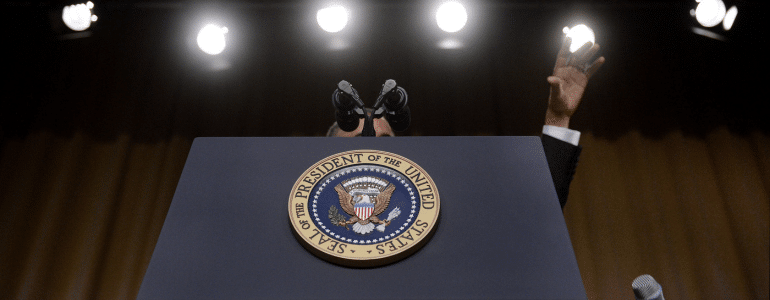5 Things we can all learn from the “drama” on The Voice.
I consider myself a pretty early adopter. I was one of the first folks on an iPhone, which snagged me this commercial (!), I bought stock in 3D printers and Salesforce before they were a thing (unfortunately, I sold waaaay too soon), and I knew Kristen Chenoweth was going to be a superstar when I saw her in Steel Pier. 🙂
So, if I’ve got such a good spidey sense, how did I miss The Voice?
It took me being in Mexico with limited TV options (CNN, non-stop telenovelas, and the Adam Sandler/Drew Barrymore movie Blended on loop) for me to stumble onto The Voice . . . and get hooked . . . like Adam Sandler and Drew Barrymore are hooked on doing mediocre movies together.
Certainly, I was aware of the show. But it looked complicated. I was never an Idol fan. And I was over the reality TV craze.
So why have I now started DVRing this sucker and playing the “Battles” on repeat in my office?
There are 3 things that The Voice has that keeps me entertained which we should have in all of our dramas . . . on TV or not.
Here they are . . . with a nod to another reality show in calling them all “Factors”:
- The Underdog Factor Underdogs stories are what audiences love. From Rocky to Elphaba, the hero that faces more challenges than most makes it easy for us to root for them. The Voice starts with “unknowns” getting a shot at their big break, but the show takes it one step further. By making the first audition “blind” and only about the “voice,” they get singers of all shapes, sizes, colors, and creeds, and most notably not what would usually come out of a record producing factory. It’s timely. It’s important. And you want these folks to succeed even more.
- The Suspense Factor Mark Burnett ain’t no idiot. He knew that he couldn’t just do another Idol and have it work. He had to find ways to make his show unique. Sure, there was suspense in finding out who won every week, but that’s what Idol did. To give the audience something they haven’t seen before, Mark added “steals” and “blocks” for its coaches, adding another level of suspense to the story. And suspense is everything. Keeping your audience wondering what is going to happen next is a surefire way to keep them watching.
- The Contest Factor Contests and competitions make for easy dramatic story arcs. The objective of the hero is easy. He/she/they want to win. Everything he/she/they does through the “story” is about achieving that simple objective. In the end, they win . . . or lose. Adding this kind of arc to any drama gives it a better foundation to build on top of. Why do you think so many documentaries are about contests? Or think Spelling Bee. If you can’t make your story an out-and-out literal competition, you can still think about your show like one. West Side Story . . . Tony wants to win the hand of Maria (and vice versa), despite some stiff competition. May seem simplistic, but it works.
- The Positivity Factor Everyone was sick of Simon Cowell. Everyone is sick of the negative news cycle (even The Weather Channel participates in this craziness). It’s easy to spit nastiness, but at the end of the ‘play’, people want joy in the entertainment, and that is what The Voice is all about. There are no judges. There are coaches. And they all support and encourage, even for the folks who are not on their teams. Plays can get away with a little more “darkness,” but a musical needs a ray of sunshine at the end and a bit of hope to take out in the streets. It’s why musicals were invented in the first place . . . to help our audiences forget about their troubles and “come on, get happy.”
- The Audience Participation Factor This one isn’t new, by any stretch, but having the audience vote for the winner (and now by App!) keeps your audience engaged, as we know. But what’s different today than it was 120 years ago is that audiences no longer want to be involved in the story in a different way, they need to be involved. Leave them out, behind a fourth wall, and they will leave you out of their to-do list. Of course, not every show needs to have an audience vote, or bring them on stage, or even have an immersive design. But modern day storytellers should remember that today’s audience, and more importantly, tomorrow’s, have grown up being a part of their entertainment (through video games, reality TV, etc.) and we’ll need to figure out how to do the same.
Do you watch The Voice? Any reality TV? Anything you think we can take away for what we do?
Comment below.
In the meantime, go Rod Stokes!
https://www.youtube.com/watch?v=SgSCPr6hl-Q
– – – – –
Our marketing and productivity conference is just three weeks away. Come and learn how to take your career and your passion to the next level with simple action items from marketing gurus. Guaranteed to get you more of whatever you want out of the biz. See here for more.
Podcasting
Ken created one of the first Broadway podcasts, recording over 250 episodes over 7 years. It features interviews with A-listers in the theater about how they “made it”, including 2 Pulitzer Prize Winners, 7 Academy Award Winners and 76 Tony Award winners. Notable guests include Pasek & Paul, Kenny Leon, Lynn Ahrens and more.














